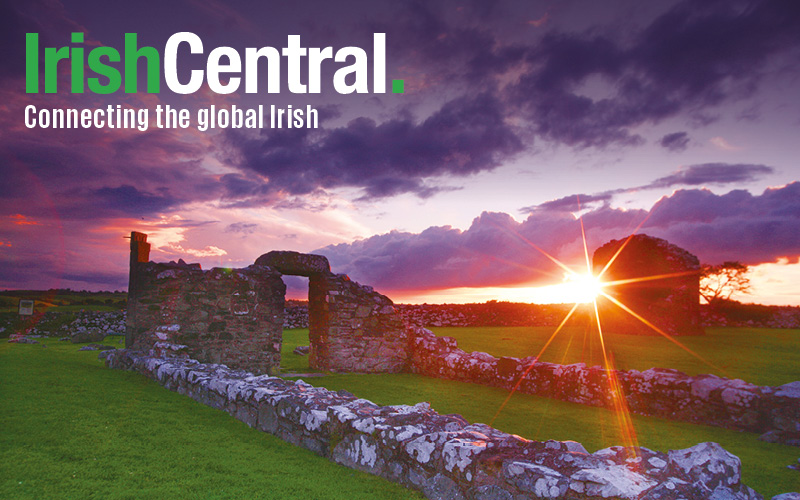Irishman challenges law new Canadian citizens must swear allegiance to the Queen
New citizens must swear to be “faithful and bear true allegiance to Queen Elizabeth.”
By Sheila Langan
An Irish citizen is among those appealing the section of the Canadian citizenship oath that asks new Canadians to promise they will be “faithful and bear true allegiance to Queen Elizabeth the Second, Queen of Canada, her heirs and successors.”
Under the current law, the section is mandatory and those who refuse to repeat it cannot be granted citizenship.
Three long-time Canadian permanent residents – Irish-born Michael McAteer, Israeli Dror Bar-Natan and Jamaican-born SimoneTopey – have filed the case with the Ontario Court of Appeal. They hold that the oath violates their right to free speech.
Michael McAteer, who emigrated from Dublin to Canada in 1964 is now retired and in his 70s, McAteer previously worked as a journalist with the Toronto Star. He says the oath requirement is the only reason why he has never become a Canadian citizen after all his years of living and working there.
"In general, I don't like monarchies. If they would require me to take an oath to be faithful to Canada, that would be fine. But as a democrat, I think the monarchy is an undemocratic system that serves no purpose whatsoever," he previously told the National Post.
He also points out that those who are born Canadian citizens do not have to take the pledge, nor do those born abroad to Canadian parents.
When the case came before the Ontario Superior Court last September, Justice Edward Morgan ruled the oath to be constitutional and not in violation of religious or equality rights, though he did acknowledge that it violates their right to free speech.
This time around, both Ottawa and the permanent residents have moved to appeal. Ottawa is appealing the conclusion that the oath violates free speech, while the permanent residents are appealing Justice Morgan’s conclusion that the oath does not violate their rights to equality or religious freedom.
Their appeal filing reads “The oath requirement imposes a coercive burden on the appellants to express meaning and content to which they are fundamentally opposed” be it for religious or contentious reasons.
In its statement, the Ottawa government counters “Each of the appellants objects to taking the oath because of their subjective belief that the Queen, Canada’s constitutional head of state, is a symbol of tyranny, colonial oppression, racial prejudice and similar attributes. . . . The court below found that these views were mistaken and were based on a misinterpretation of the meaning of the oath to the Queen.”
Canada gained its independence from England in stages throughout the mid to late 1800s but it is still a British Commonwealth, and Queen Elizabeth its sovereign. She appears on the Canadian $20 bill and is the symbolic Colonel-in-Chief of the Canadian armed forces.
In addition to Canada, other current commonwealths include Australia and New Zealand, The Bahamas, Barbados, and Jamaica.
An Irish citizen is among those appealing the section of the Canadian citizenship oath that asks new Canadians to promise they will be “faithful and bear true allegiance to Queen Elizabeth the Second, Queen of Canada, her heirs and successors.”
Under the current law, the section is mandatory and those who refuse to repeat it cannot be granted citizenship. Three long-time Canadian permanent residents – Irish-born Michael McAteer, Israeli Dror Bar-Natan and Jamaican-born SimoneTopey – have filed the case with the Ontario Court of Appeal. They hold that the oath violates their right to free speech.
Michael McAteer, who emigrated from Dublin to Canada in 1964, is now retired and in his 70s. McAteer previously worked as a journalist with the Toronto Star. He says the oath requirement is the only reason why he has never become a Canadian citizen after all his years of living and working there.
"In general, I don't like monarchies. If they would require me to take an oath to be faithful to Canada, that would be fine. But as a democrat, I think the monarchy is an undemocratic system that serves no purpose whatsoever," he previously told the National Post. He also points out that those who are born Canadian citizens do not have to take the pledge, nor do those born abroad to Canadian parents.
When the case came before the Ontario Superior Court last September, Justice Edward Morgan ruled the oath to be constitutional and not in violation of religious or equality rights, though he did acknowledge that it violates their right to free speech.
This time around, both Ottawa and the permanent residents have moved to appeal. Ottawa is appealing the conclusion that the oath violates free speech, while the permanent residents are appealing Justice Morgan’s conclusion that the oath does not violate their rights to equality or religious freedom.
Their appeal filing reads, “The oath requirement imposes a coercive burden on the appellants to express meaning and content to which they are fundamentally opposed” be it for religious or contentious reasons.
In its statement, the Ottawa government counters, “Each of the appellants objects to taking the oath because of their subjective belief that the Queen, Canada’s constitutional head of state, is a symbol of tyranny, colonial oppression, racial prejudice and similar attributes. . . . The court below found that these views were mistaken and were based on a misinterpretation of the meaning of the oath to the Queen.”
Canada gained its independence from England in stages throughout the mid to late 1800s, but it is still a British Commonwealth, and Queen Elizabeth its sovereign. She appears on the Canadian $20 bill and is the symbolic Colonel-in-Chief of the Canadian armed forces. In addition to Canada, other current commonwealths include Australia and New Zealand, The Bahamas, Barbados, and Jamaica.




Comments